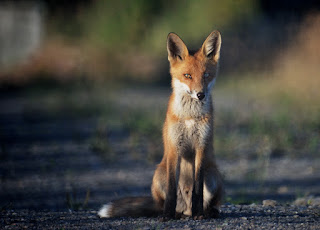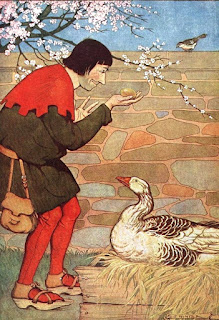Of foxes, and kings.

Does a social system with entrenched privilege systematically breed progressively nastier people? I suspect it does, and I shall argue it.
I used to believe that the reason the British elite are in general such noxious people was because our system of elite education is so bad; but I've begun to doubt that that's the whole story.
Mastering Revision Control

This morning, browsing Twitter as one does, I came across this tweet:
“Don't use feature branches: work on master all the time. Make changes in tiny steps. Each change is itself atomic and leaves the code in a working state. We are happy to deploy changes into production that are not yet complete, but don’t break anything.” https://t.co/aPq24xxRW4 — John Arundel (@bitfield) April 18, 2018
Mourning goose

The last thirty years have seen an extraordinary change in the technical substrate on which our culture is built. The World Wide Web, created in Europe in in 1989, made the Internet usable for non-technical people. Across the Web, the vast majority of servers run on Linux, an operating system written in Europe between 1991 and 1993, as do the vast majority of mobile phones, and many of the Internet's routers. Meantime, most Apple products — computers, phones and tablets — are built on the BSD operating system, as are many other Internet routers.
Facebook, the towering proprietary monolith of social media, was built on PHP, a web scripting language written in Canada by a European (strictly, a Greenlander), as are all Yahoo's and Wikipedia's web services. Twitter was built on Rails, a web framework written by a European working in the US.
Yet another bid to centralise power
 A bunch of unbelievable dunderheids calling themselves the 'Constitutional Reform Group' are proposing a new Act of Union. You can read it here. The group are remarkably coy about their membership, but rumour has it that they are, at least primarily, members of the House of Lords — which comes as no surprise to me (indeed, I'd hazard I could correctly guess the names of several members).
** Long time readers of my blog will recall that I've written on the UK constitution, rather often:
A bunch of unbelievable dunderheids calling themselves the 'Constitutional Reform Group' are proposing a new Act of Union. You can read it here. The group are remarkably coy about their membership, but rumour has it that they are, at least primarily, members of the House of Lords — which comes as no surprise to me (indeed, I'd hazard I could correctly guess the names of several members).
** Long time readers of my blog will recall that I've written on the UK constitution, rather often:
- The West Lothian question, take two
- Parliamentary Questions
- Submission to the Smith Commission
- Scottish devolution, and socialism in one nation
- A breakfast any self-respecting dog would reject
Fortunately the committee have provided a feedback form through which you can give your opinion of their turgid bucket of foetid dingoes' kidneys, here. I strongly commend the idea you do so. For inspiration, my own contribution is below; do not copy it, as that is bad form, but feel free to riff melodically on some of these points.
Response to consultation on a new enterprise agency for the South of Scotland
1 Do you agree with our ambition outlined?
Yes
